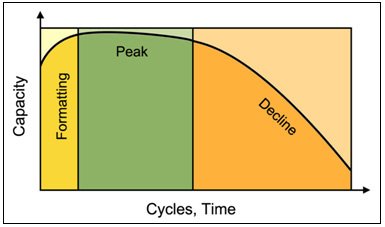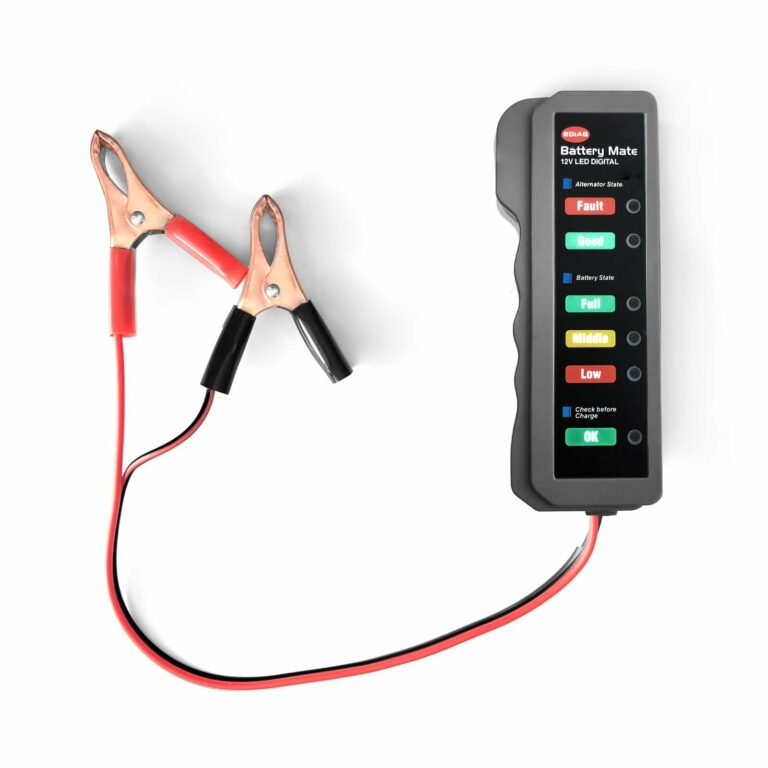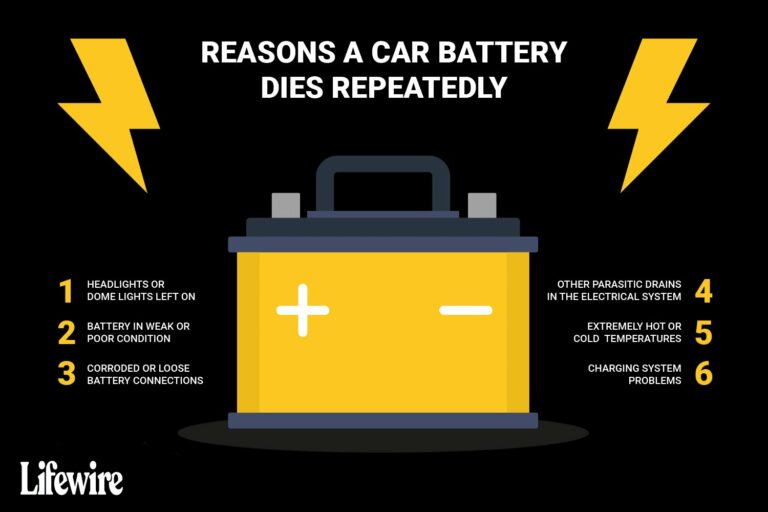Can A Car Battery Freeze In Winter? Expert Insights
Can a car battery freeze in winter? Absolutely. Winter can be harsh on many aspects of your vehicle, and your car battery is no exception. As the temperatures drop, the chemical reactions within the battery slow down, making it harder for the battery to generate the necessary power to start the engine.
This can eventually lead to freezing of the battery electrolyte, which can cause irreparable damage. But worry not, there are simple precautions and maintenance steps you can take to prevent such a situation from occurring. Let’s dive in and explore how you can keep your car battery in good shape during the winter months.
Can a Car Battery Freeze in Winter?
In cold climates, winter poses challenges for car owners such as icy roads and frozen windshields. Taking precautions is crucial to maintain your vehicle’s functionality. Many wonder if car batteries can freeze in winter. This article explores this topic and its relation to freezing temperatures.
Understanding Car Batteries
Before we discuss the possibility of a car battery freezing in winter, let’s first understand how a car battery works. A car battery is essentially a rechargeable device that supplies electrical energy to a vehicle. It plays a crucial role in starting the engine, powering the lights, operating the heater, and running other electrical components in the car.
Car batteries are typically lead-acid batteries, consisting of lead plates submerged in a solution of sulfuric acid. The chemical reaction between the lead plates and the acid generates electrical energy, which is stored in the battery until it is needed. In cold temperatures, the chemical reactions inside the battery can slow down, affecting its performance.
Factors Affecting Battery Performance in Winter:
Several factors can affect the performance of a car battery in the winter season. Let’s explore some of these factors in more detail:
Cold Cranking Amps (CCA)
Cold Cranking Amps (CCA) is a measure of a battery’s ability to start an engine in cold temperatures. It represents the amount of current a battery can deliver at 0°F (-17.8°C) for 30 seconds without dropping below a specified voltage. Batteries with higher CCA ratings are better equipped to handle the increased demands of starting a car in cold weather.
State of Charge (SOC)
The state of charge refers to the amount of electrical energy stored in a battery. A fully charged battery has a higher freezing point than a partially charged or discharged battery. It is important to keep your car battery properly charged during winter to minimize the risk of freezing.
Battery Age and Condition
The age and condition of a car battery can significantly impact its ability to withstand freezing temperatures. Older batteries tend to have reduced capacity and are more susceptible to freezing. It is recommended to replace your battery if it is more than three to five years old or shows signs of deterioration.
Battery Insulation
Proper insulation around the battery can help protect it from extreme cold. Some vehicles have battery blankets or insulation kits available to provide an extra layer of protection. These accessories can help maintain a higher temperature around the battery, reducing the risk of freezing.
Vehicle Usage and Storage
The frequency and duration of vehicle usage can also impact the battery’s performance in cold weather. If a car is left unused for extended periods in freezing temperatures, the battery may drain faster or freeze due to lack of activity. Similarly, storing a vehicle outdoors without any form of protection can increase the chances of the battery freezing.
Preventative Measures for Winter Battery Care
While it is possible for a car battery to freeze in winter, there are several precautions you can take to minimize the risk. Here are some preventative measures for winter battery care:
1. Keep Your Battery Charged
- Regularly check your battery’s state of charge using a voltmeter or multimeter.
- If the charge level is low, recharge the battery using a suitable battery charger.
- Consider investing in a battery maintainer or trickle charger to keep the battery charged during periods of inactivity.
2. Park Your Vehicle in a Garage
- If possible, park your car in a garage or enclosed space to protect it from extreme cold.
- A sheltered location helps to maintain a higher ambient temperature around the battery.
3. Insulate Your Battery
- Consider using a battery blanket or insulation kit to provide extra insulation during winter.
- These accessories help to retain heat around the battery, preventing it from freezing.
4. Limit Electrical Load
- Minimize the use of electrical components when starting the vehicle in cold weather.
- Turn off unnecessary lights, heaters, and other electrical devices to reduce the load on the battery.
5. Regularly Check Battery Health
- Have your battery inspected by a professional to ensure it is in good condition.
- Check for signs of corrosion, leaks, or other damage that may impact performance.
Dealing with a Frozen Battery
In the unfortunate event that your car battery does freeze, it is important to handle the situation correctly. Here are some steps to follow if your battery is frozen:
1. Safety First
- Always wear protective gloves and safety goggles when handling a frozen battery.
- Ensure the vehicle is parked in a well-ventilated area to prevent exposure to harmful fumes.
2. Thaw the Battery
- If the battery is frozen but not cracked, move the vehicle to a warm location such as a heated garage.
- Allow the battery to thaw naturally. Do not attempt to accelerate the process using external heat sources as this can damage the battery.
3. Inspect for Damage
- Once the battery has thawed, carefully inspect it for any signs of damage or leakage.
- If you notice cracks or leaks, it is essential to replace the battery with a new one.
4. Recharge the Battery
- If the battery is still in good condition after thawing, recharge it using a suitable battery charger.
- Ensure the battery is fully charged before reconnecting it to the vehicle.
Can a car battery freeze in cold weather?
Faqs for Car Battery Freeze In Winter:
When a car battery freezes, the electrolyte solution inside can expand and rupture the battery’s casing or internal components. This can result in irreversible damage to the battery, leading to reduced capacity and a shorter lifespan. In severe cases, a frozen battery may no longer hold a charge or fail to start the vehicle.
To prevent your car battery from freezing, you can take a few precautions. Firstly, park your vehicle in a garage or sheltered area during cold winter months. If this is not possible, consider using a battery insulation kit specifically designed to protect the battery from extreme temperatures. Additionally, it is important to keep your battery clean and free from corrosion, as this can affect its overall performance in cold weather.
If you suspect that your car battery is frozen, it is best to avoid attempting to jump-start the vehicle or charge the battery until it has thawed. Move your vehicle to a warmer location, preferably an indoor space, and allow the battery to thaw naturally. Once completely thawed, check the battery’s condition, and if necessary, have it tested by a professional to determine if any damage has occurred.
Yes, extreme cold weather can significantly affect a car battery’s performance. Cold temperatures reduce the battery’s ability to provide the necessary cranking amps to start the engine. This can cause slower engine cranking or difficulty starting the vehicle. It is recommended to have your battery tested before the winter season to ensure it is in good condition and to consider using a cold weather battery if you live in an extremely cold climate.
There may be a few signs that your car battery has frozen. These include a swollen battery case, visible cracks or damage to the battery casing, or a battery that feels unusually heavy. However, it is worth noting that these signs could also indicate other issues, so it is best to have the battery inspected by a professional to determine the exact cause of the problem.
Final Thoughts
A car battery freezing in winter can be a common concern for many car owners. However, with the right precautions, it is possible to prevent this issue. Ensuring that the electrolyte level of the battery is adequate and using a battery blanket or insulation can help protect the battery from freezing temperatures. Additionally, regular maintenance such as checking the battery’s charge and keeping it clean can further prevent freezing. So, while a car battery can freeze in winter, taking preventive measures can help keep it functioning optimally throughout the colder months.




